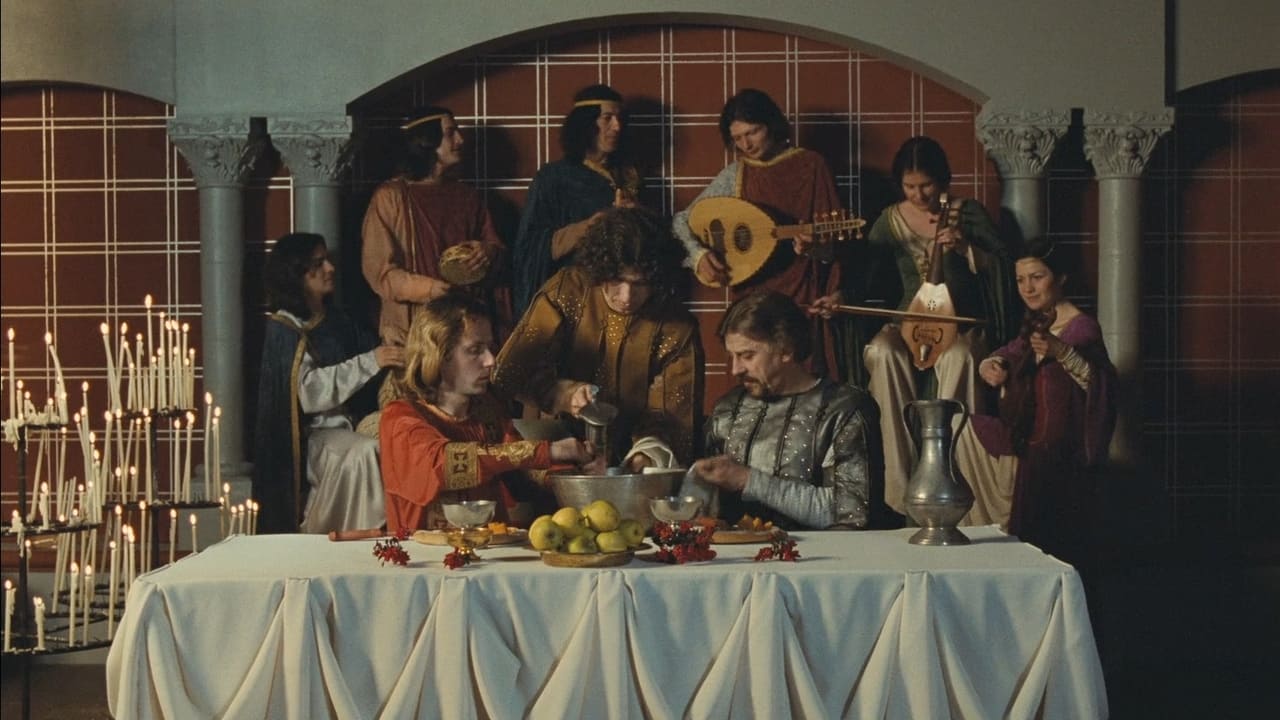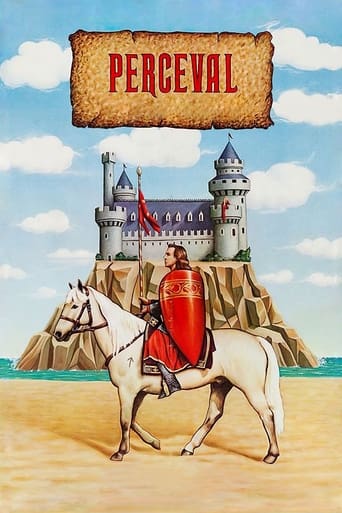

People are voting emotionally.
... View MoreA Brilliant Conflict
... View MoreIt's the kind of movie you'll want to see a second time with someone who hasn't seen it yet, to remember what it was like to watch it for the first time.
... View MoreAmazing worth wacthing. So good. Biased but well made with many good points.
... View Moreand it doesn't help rohmer's case that a few years later Syberberg came along and made a staggeringly great piece of work on the same subject (with a little help from Wagner).maybe this movie didn't look so paltry when it came out, without the syberberg film to compare it to, which was probably shot on an even smaller sound stage with fewer resources. I actually can't recall at the moment whether there are horses in the syberberg film. all I know is, the German version is pure magic, while this one looks like some college production documented on film for archival purposes.the music... la musique... isn't even credited here on IMDb... but someone based it on 'airs from the 12th-14th centuries" or something... well it isn't a great help to the film. it comes off as inauthentic and cheesy, comme le frommage mon cher!!!rohmer is one of those french auteurs who likes his leading men generally quite unattractive, too, and that doesn't help matters. syberberg's Parsifal was adorable, and can be seen on German television today selling some kind of special bicycle he invented. .. .I shudder to think what watching the syberberg on video is like. I remember that the last time I saw the film in a theater, the print was so bad that the experience was a whopping 5 hour travesty. But even then it would have to surpass what this version has to offer, I'm afraid.points for earnestness, for chutzpah, but... this film simply needed beau-coup more bucks. it doesn't look like a medieval manuscript it looks CHEAPO! BON MARCHE!! oh and yeah, it just ends very arbitrarily with Parsifal going to church and this cheesy passion play being interjected... blah!
... View MoreI admit that I avoided this film for years probably because most films that have dealt with the Arthurian legend have been pretty bad. So when I finally watch it this year during a retrospective of Rohmer's oeuvre, it was a surprise to find that this movie is really wonderful, and it ought to be better known. Based on Chretien de Troyes medieval book, the film is at times faithful to its literary source and at times very, very eccentric. The style is difficult to explain: the movie wallows in its deliberate artificiality, with its cardboard sets, its wooden acting, and its impromptu (and wonderful) medieval songs. And to top it all, the movie ends with a long rendering of a medieval mass. The movie has a lot of humor actually, which is fairly unusual in Rohmer films, a humor that is very self-conscious and is very 20th century (brechtian distance is a phrase that comes to mind when you watch this film), yet at the same time, the film sometimes looks as a film that could have been made in the 12th century, had the technology been available back then.
... View MoreEric Rohmer is a wonderful cineast and proves here to be a wonderful raconteur of fables too !Certainly Rohmer has his own remarkable way to tell the saga of Perceval, the knight who is here not so much naive but rather ignorant. This knight starts out as a twin brother of that other ignoramus: Siegfried, immortalized by Richard Wagner.What a stupendous crude, rude and totally dimwit idiot that one is and remains !! Not Perceval: he learns, grows ... all be it the hard way... And shines !!A truly unique film, I have not seen anything like it; combining so many different art forms in one, and excelling in all. Plus performances by marvelous actors (don't miss Dombasle in a small supporting role !!), guided by one of the truly gifted directors of the XXth Century.PS: Rohmer never used silly soundtrack-support, which has been in vogue thanks to the crushing influence of Hollywood. Here though he compensates by giving us a medieval ... musical !!Thank you very much, cher Maitre.
... View MoreI am truly a lover of Rohmer's films in modern settings. Although the dialog is elevated and more self-aware than any found in real life, the dilemmas of the unusually beautiful people who ponder their way through Rohmer films are always involving and relevant.But the latest Rohmer historic film, The Englishlady and the Duke, was quite leaden, despite the use of digitized versions of classic paintings as backdrops. The characters were too involved in their narrow revolutionary or anti-revolutionary politics, and the opportunity to relate to those characters was nil.So I was not looking forward to Perceval, but I was completely entranced by it. It is somewhat "historical," but totally stylized. It is largely narrated by madrigal singers who wander in and out, sometimes portraying characters. The lead, Perceval (Fabrice Luchini) is a nice-looking youth, but not one to make you swoon. He's attractive in a Jean-Pierre Léaud way--objectively odd-looking, yet appealing.The plot involves Perceval's admittance into the world of knights, gallantry, and chivalry. He is so awestruck by knightly notions that he takes to knighthood, and is taken into knighthood, with no challenge that he cannot surmount. He arrives at Arthur's (Marc Eyraud's) court, finds it feeble and on the verge of hostile takeover, and singlehandedly restores it to glory. He meets women and treats them with respect and reverence, serving them and protecting their virtue.The plot winds away from Perceval toward the final third of the movie, focusing on Sir Gawain (André Dussollier) and one of his exploits. But I assume that this follows the source material. The movie ultimately reaches a nicely French, existentialist conclusion.I don't know who this movie is for: perhaps for Rohmer, myself, and a few French & Francophile intellectuals. But I thought it was quite lovely.
... View More